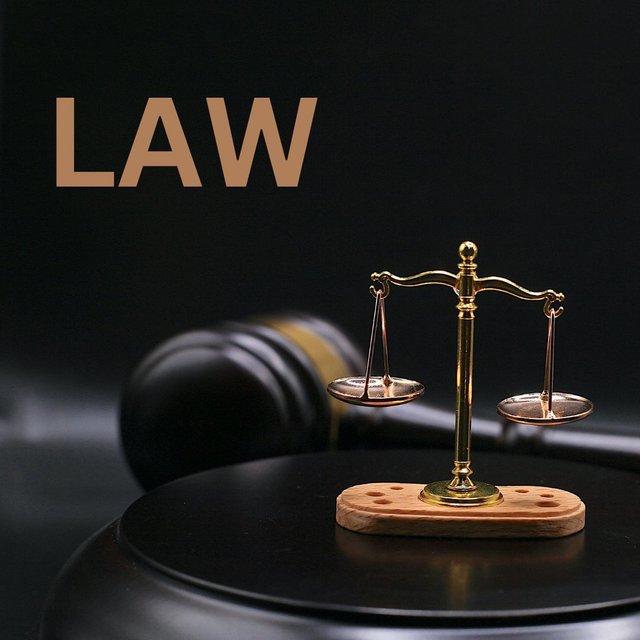SLC22-W1 / Basic Notions of Law.

🔷 Part 1: What is Law?
1️⃣. In its most essential sense, law is more than just a region’s collection of rules. Rather, it is the spine of any well-organized society, providing the structures necessary to ensure that there is order and that people coexist peacefully. More importantly though, law is about fairness, equality and justice. It stipulates the processes through which disputes are to be resolved, as well as the manner through which people are to interact. In doing so, it ensures that people live their lives in peace under the protection of the law.
2️⃣. Suffice it to say, without law, society would simply be in a state of disarray. For example, individuals would do things ‘as they feel’ abusing one another in the Name of ‘individual interest’ which would eventually lead to ‘anarchy’. Such principles-laid down laws govern that people’s interest is safeguarded. Such principles would lay down acceptable actions and those that are not, explaining that vilification would occur, but so would measures in defense against vilification.

🔶Importance of Law:
The presence of law is essential for the development and stability of every society. Its importance is evident in the following points:
🔸 Delivery of Justice: The law provides justice to every person and prevents abuse or injustice to anyone.
🔸Social Cohesion: The law provides equal rights to all individuals and improves social relationships.
🔸Economic Development: Business and economy are promoted under the law, as it provides protection for investment and business transactions.
🔸Political Stability: The law promotes transparency and trust between government and citizens.
🔷 Part II: Explanation of the right and the right to personal
It is very important to understand the right and personal right in the study of law. Both of these rights regulate different aspects of human life and meet different needs.
What is right?
Righteousness are laws that apply equally to all members of society and aim to ensure justice and discipline. These laws are enforced by the government and punished for their violation.
⬛Features:
▪️These laws are the same for all people.
▪️Violation of these laws leads to legal action.
🔲Examples:
◽Traffic rules, such as stopping a vehicle at a red signal.
◽Tax laws, under which every citizen has to pay tax at the appointed time.
What is the right personal?
The right to personal is the rights that provide an individual with their personal needs, freedom, and protection. These rights are important for the protection of human personality and freedom
⬛Features:
▪️These rights are related to the personal life of the individual.
▪️Their goal is to promote individual freedom and autonomy.
🔲Examples:
◽Right to education.
◽Right to own and use property.
◽Practical Case Analysis:
A citizen crosses the red light of a traffic signal and when the police stop him, he justifies that he was in a hurry to take his sick child to the hospital.
⭕Haq-e-Aini:
Compliance with traffic rules is mandatory for all drivers, who are designed to maintain discipline.
🔷Part III: Difference between law and regulation
⚫Law:
Laws are principles that are enforced by the government and are intended to ensure social justice and discipline. The laws are written and clear and legal action is taken against their violation.
🔲Example:
◽ Laws made for murder.
◽Laws made theft.
◽Laws made fraud.
⬛Regulation:
Regulations are informal principles that are based on social values or the principles of an organization. Violation of them is met with moral or social pressure, but not legal action.
▪️Example:
Waiting for your turn in a queue or talking politely at an event.
Practical Case Analysis:
Mr. Jon Perez has not been able to pay the rent for three months and has kept four pet dogs in violation of apartment living rules.
🔸Violation of the law:
Non-payment of rent is a violation of a legal contract and the landlord can take action against it in court.
🔸Violation of regulation:
Having four dogs in an apartment is a violation of residency rules, which fall under penalty at the social level, not legal.
🔷Part IV: The Importance of Comparative Law
What is Comparative Law?
Comparative law is the process of studying and analyzing the legal systems of different countries. Through this we can understand the difference and analogy between different legal principles and get guidance to improve our system.
🟥Importance of Comparative Law:
Improvement of legal system: Through comparative law we can adopt successful laws of other countries.
🔺 International Cooperation:
It provides legal cooperation and conflict resolution assistance between different countries.
🔺Educational Benefits:
It provides students and experts with an in-depth understanding of different systems
🔺Global Cohesion:
Comparative law helps in creating harmony between different systems of the world.
🔺Personal opinion:
Comparative law helps us to establish a just and developed society, where the rights of every citizen are protected.
Conclusion:
Law and regulation are important components of human life that ensure social justice, discipline and individual freedom. Establishing a balance between right and right personal is indispensable for a successful social system. Through comparative law we can improve our system and learn from the experiences of other countries. All these factors help in establishing a strong, peaceful and developed society.
Specially invitation to
@farooq2923
@abdulqayyum95857
@amjadsharif

The way you connected law to real-life scenarios is very inspiring. It helps people understand the impact laws have on daily life. Kudos to you.
Yes, Thanks